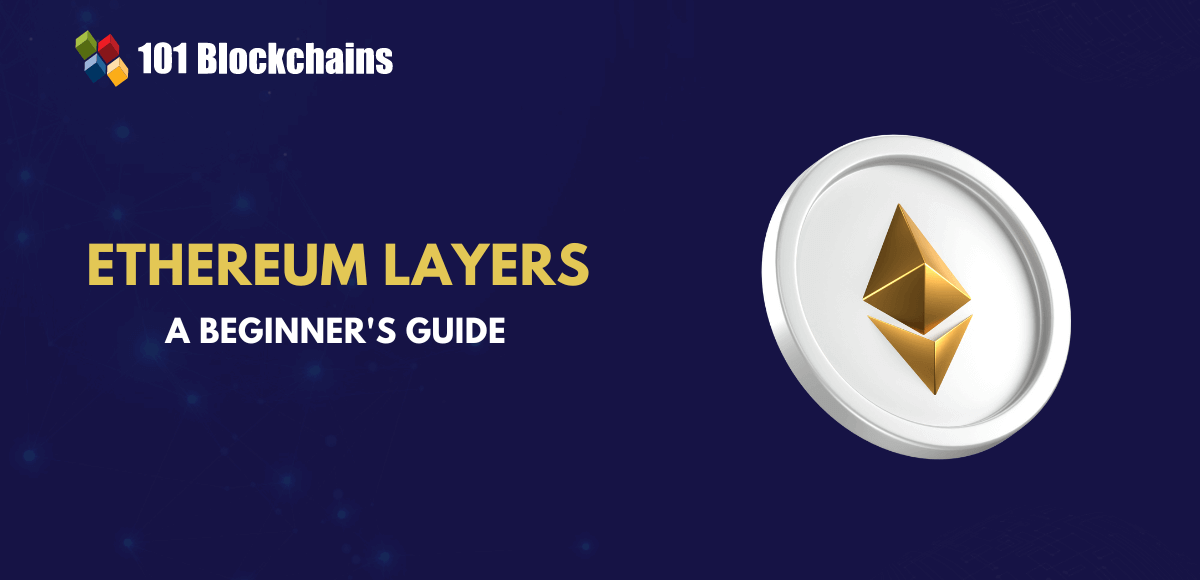Learn how blockchain truly works, master key definitions, and uncover what makes smart contracts so "smart." Dive into the fundamentals, gain valuable insights, and start your blockchain journey today!

- Ethereum
Georgia Weston
- on November 29, 2023
List of 5 Ethers.js Alternatives
Blockchain technology redefined the conventional notions of programming with new structures for storing and exchanging data. The continuously growing demand for web3 developers has created more curiosity about tools for developing blockchain-based applications. Ethers.js is one of the notable examples of tools used in blockchain development. Web3 and blockchain developers have been seeking the best ethers.js alternatives to find new perspectives on efficiency in the development workflow. All programmable blockchains feature a collection of SDKs or libraries, which help in connecting and interacting with the concerned blockchain.
Most of the blockchain networks you see today depend on Ethereum blockchain, which makes them EVM-compatible. When you create an ETH library, it can find applications across different EVM-compatible blockchain networks. Let us explore some of the top alternatives to ethers.js in the following post.
Excited to build your skill in Ethereum development by leveraging the ethers.js library? Enroll Now in Ethers.js Blockchain Developer Course
Role of JavaScript in Blockchain
Your search for the best alternatives to ethers.js should begin with the identification of the major theme of ethers.js. First of all, you must remember that it is a JavaScript library. What role does JavaScript serve in blockchain networks? JavaScript was introduced in 1995 by Brendan Eich and has become one of the most popular programming languages underlying the design of many notable tools used today. Interestingly, JavaScript has bagged the rightful place among the top ranks of programming languages used by software developers.
Assume a situation where you have to solve a specific problem, and JavaScript is the only programming language you know. At this point in time, would you learn an advanced language or use JavaScript to solve the problem? As a matter of fact, many developers have come across this problem while working on blockchain projects.
Developers have discovered new ways for creating dApps by using JavaScript in the form of SDKs or libraries for connecting to blockchain networks. Therefore, JavaScript has played a vital role in reducing the barriers to entry for developers in the domain of blockchain. Developers don’t have to learn advanced languages such as Rust or Solidity to build on the Ethereum or Solana blockchain.
Build your identity as a certified blockchain expert with 101 Blockchains’ Blockchain Certifications designed to provide enhanced career prospects.
Understanding Ethers.js
If you want to find answers to “What else can I use instead of Ethers.js?” you should learn about ethers.js. Why is ethers.js popular among blockchain developers? Ethers.js was created in 2015 by Richard Moore, a Canadian software engineer. It has achieved steady growth over the years. On top of it, ethers.js has become a popular JavaScript library for Ethereum developers working on web3 development projects.
Ethers.js has offered a flexible tool for helping web3 developers interact with Ethereum or EVM-compatible blockchain networks. One of the most promising highlights of Ethers.js is its lightweight nature. At the same time, it follows a distinctive approach to managing keys and interacting with blockchain.
The search for answers to “What is the best alternative to ethers.js?” could also lead you to the two crucial entities which define the functionalities of ethers.js. First of all, you can find a wallet for signing transactions by using private keys. Another component in the working of ethers.js is the provider. Provider helps in connecting to the desired blockchain by leveraging the JSON-RPC URL. Ethers.js verifies the state of transactions before sending them.
Learn comprehensively about the working of Ethereum and understand the developments by enrolling in the Ethereum Technology Course.
Advantages and Limitations of Ethers.js
The description of how ethers.js library works in web3 development provides a glimpse of its advantages. At the same time, you can also come across certain limitations while working with Ethers.js. If you want to learn about the best ethers.js alternatives for 2023, then you must know about the good and bad side of ethers.js. Here are some of the notable advantages you can find with ethers.js.
- Ethers.js is lightweight in terms of size. The compressed size of the library is 88KB, and the uncompressed size is 284KB.
- Ethers.js has more than 10,000 test cases, which provides the assurance of effectiveness in web3 development workflows.
- The small size of ethers.js enables its applications on the front end for drastic improvements in performance.
- Ethers.js also supports ENS or Ethereum Name Service, which helps in setting up a domain name without the complexities of a boilerplate code.
- Another significant highlight of Ethers.js is the MIT licenses, which add credibility to the library. It also allows free use alongside modifications according to developer requirements. On the other hand, developers using Ethers.js as a library for linking to larger programs should release the derivative work with an LGPL-3.0 license.
You might wonder why people seek best ethers.js alternatives when it presents so many advantages. The reason would point you toward the limitations associated with Ethers.js. For example, ethers.js is a comparatively new library, and developers may encounter issues without answers on platforms such as StackOverflow. In addition, many startups use web3.js as an alternative for core web3 projects. Therefore, learners might have to look for alternatives to ethers.js for working with such companies.
Want to learn the basic and advanced concepts of Ethereum? Enroll now in Ethereum Development Fundamentals Course
What Are The Notable Modules in Ethers.js?
Before you start exploring the details of best alternatives to ethers.js, it is important to learn about the crucial modules in ethers.js. Why should you learn about the modules in ethers.js? It can help you learn about the core functionalities of ethers.js and how its alternatives compare with the ethers.js modules. You can find four notable modules which serve as the core elements in Ethers.js API. The four modules include Ethers.Provider, Ethers.utils, Ethers.Contract and Ethers.Wallet.
- Ethers.Provider module refers to the node service provider, such as Infura or Alchemy, which offer pre-configured nodes.
- Ethers.Contract module helps in deploying and interacting with smart contracts. On top of it, the module also offers packed functions for listening to smart contract events.
- The Ethers.Wallet module helps in connecting to an existing address alongside signing and creating new wallets with limited effort.
- Ethers.utils module is applicable for formatting data in the form of balance figures of a wallet alongside processing input by another user.
Familiarize yourself with the popular blockchain network, Ethereum, and ensure overall, comprehensive skill development with Ethereum Skill Path
Top Alternatives for Ethers.js
The detailed introduction to Ethers.js provides a clear impression of its working mechanisms and capabilities. On the other hand, it is also important to reflect on the limitations of Ethers.js. Developers would need information about the best ethers.js alternatives for 2023 to overcome the challenges with ethers.js. Some of the notable alternatives to ethers.js include web3.js, web3.py, libp2p, web3j, and light.js. Let us uncover the details about these alternatives and check whether they are better than the ethers.js library.
-
Web3.js
The most prominent entry among alternatives to ethers.js is web3.js. As a matter of fact, ethers.js had emerged as a prominent competitor to web3.js, the dominant favorite among blockchain developers. Web3.js is one of the credible responses to “What else can I use instead of ethers.js?” with its broad range of features. It is a popular JavaScript library that helps in establishing connections between clients and the blockchain. Web3.js library works by interacting with local or remote Ethereum nodes by leveraging HTTP, WebSockets, or IPC.
One of the most noticeable highlights of web3.js library is the fact that it was developed by the Ethereum Foundation. Therefore, it has the biggest community, which is an effective advantage over ethers.js. On top of it, web3.js is the most widely used library in projects and packages.
At the same time, it is important to note that web3.js does not follow the key management approach like ethers.js and does not separate providers and wallets. On the contrary, it assumes a connection between a local node and the application, where the local node addresses the needs for key storage, transaction signing, and verification of state on blockchain.
Web3.js can qualify as one of the top answers to “What is the best alternative to ethers.js?” for its popularity and community support. Web3.js has more than 17000 stars on Github as compared to the 7000 stars for ethers.js. Most important of all, developers can rely on the Ethereum Foundation support to find faster solutions in event of any unexpected issues. On the other hand, web3.js also presents some limitations, such as larger size and lack of flexibility in managing keys.
Curious to develop an in-depth understanding of web3 application architecture? Enroll Now in Web3 Application Development Course
-
Light.js
The next addition among the alternatives to ethers.js is light.js. The JavaScript library has been created by Parity Technologies and helps in developing dApps that can run on light clients with higher efficiency. Light.js qualifies as one of the best ethers.js alternatives by helping developers maintain higher performance for dApps.
It allows running dApps on a light client to reduce the burden of maintenance and infrastructure development for full nodes. Another crucial highlight of Light.js is that it is a reactive library. Therefore, developers could call single functions as the library works on choosing the best pattern for managing the query.
Light.js is one of the top additions among best ethers.js alternatives for 2023, as it focuses on simple objectives. First of all, it works by choosing the best pattern for working with light clients. It also listens to headers and makes API calls on new headers, alongside ensuring limits on the number of network calls. Subsequently, light.js adds the pattern to a high-level library, thereby enabling developers to rely on a simple API rather than following a popular pattern.
-
Web3j
The list of top alternatives to ethers.js also features web3j, a lightweight JavaScript and Android library for facilitating seamless integration with Ethereum clients. Web3j helps developers in engaging with Ethereum blockchains without the need to create individual integration codes for the concerned platform.
Web3j is one of the best alternatives to ethers.js as it is a reactive, lightweight, and type-safe library for developing and integrating smart contracts in Ethereum blockchain. The Java and Android library also provides support for Ethereum wallet and reactive-functional API to enable compatibility with filters. On top of it, web3j also offers the facility of support for Ethereum Name Service or ENS.
You can rely on web3j as a reliable response to “What else can I use instead of ethers.js?” as it features a complete implementation of Ethereum JSON-RPC client API through HTTP and IPC. In addition, Web3j also guarantees support for ERC-20 and ERC-721 token standards alongside offering a broad range of comprehensive integration tests.
Learn the fundamentals, challenges and use cases of Web3.0 blockchain from Intoduction To Web 3.0 E-Book
-
Web3.py
The discussion about alternatives to ethers.js also draws attention towards web3.py, a popular Python library for connecting with Ethereum blockchain. Web3.py can help dApp developers in sending transactions, obtaining block data, and interacting with smart contracts, among many other functions. Interestingly, web3.py is a direct derivative of web3.js JavaScript API, albeit with a focus on the requirements of Python developers.
Another interesting highlight about web3.py as one of the best ethers.js alternatives is the fact that it features a collection of libraries. The web3.py libraries could help in developing Ethereum smart contracts and transactions. It is also important to note that clients in web3.py are not user-facing applications.
In the case of web3.py, clients are the ones who can carry out transactions with blockchain by exploring relevant information from the blockchain. In addition, the clients also have the power to write new transaction data alongside executing business logic through smart contracts.
-
Libp2p
Libp2p or Library Peer-to-Peer library refers to a modular collection of networking tools to create decentralized applications. It is one of the top answers to “What is the best alternative to ethers.js?” with an organized set of protocols, libraries, and protocols for addressing the challenges in creating peer-to–peer applications. Developers could utilize libp2p for maintaining networks by using peer identity, peer routing, secure communication, and many other features.
The powerful and easily accessible network tools in libp2p help in powering big projects such as Polkadot and IPFS. Some of the notable features of libp2p include flexible addressing, content discovery, and transport-agnostic nature. It also offers features for customizable security.
Aspiring to become an Ethereum developer? Here’s a comprehensive guide on How to become an Ethereum Developer
Conclusion
The outline of best Ethers.js alternatives for 2023 showcases multiple options for web3 developers to improve their development workflow. However, it is important to notice that the alternatives to ethers.js also feature some limitations. On the other hand, the advantages of the alternatives could help developers in dealing with challenges in web3 development.
For example, web3.js provides access to a continuously expanding community of Ethereum developers. Similarly, web3j offers the flexibility for developing Android dApps, and libp2p offers a broad assortment of features like customizable security. Learn more about the popular JavaScript libraries for web3 development and their value for web3 developers right now.





